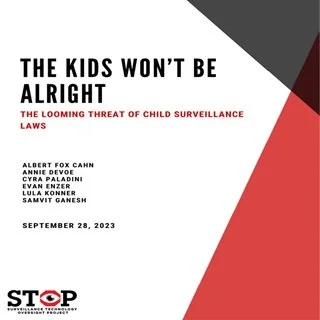Across the country, an array of new state and federal surveillance bills pose an unprecedented and existential threat to privacy, safety, and the promise of an open internet. This legislative wolf dressed in sheep’s clothing is framed around a noble goal: protecting children. Sadly, these laws are just the latest example of misguided tech policies built on a fundamental misunderstanding of the thing lawmakers seek to regulate—harming the very communities officials seek to protect.
The key flaw of these state surveillance bills is that they create a two-tiered internet, one for children, and one for adults. This is an intuitive step, but one that simply cannot be implemented in practice, as there is no effective, let alone privacy-preserving way, to determine users’ identities. These laws mandate or coerce the use of new, invasive measures that verify users’ legal name, age, and address for nearly every internet service they use. Suddenly, every online purchase and search engine query will come with state-mandated tracking, and anonymity will be a thing of the past. This change would be invasive and insecure for every user, but it would pose a particularly potent threat to undocumented communities, LGBTQ+ communities, and those seeking reproductive care. The data would be a ticking time bomb, a powerful new surveillance source for police, prosecutors, Immigration and Customs Enforcement (ICE), and private anti-choice groups.


